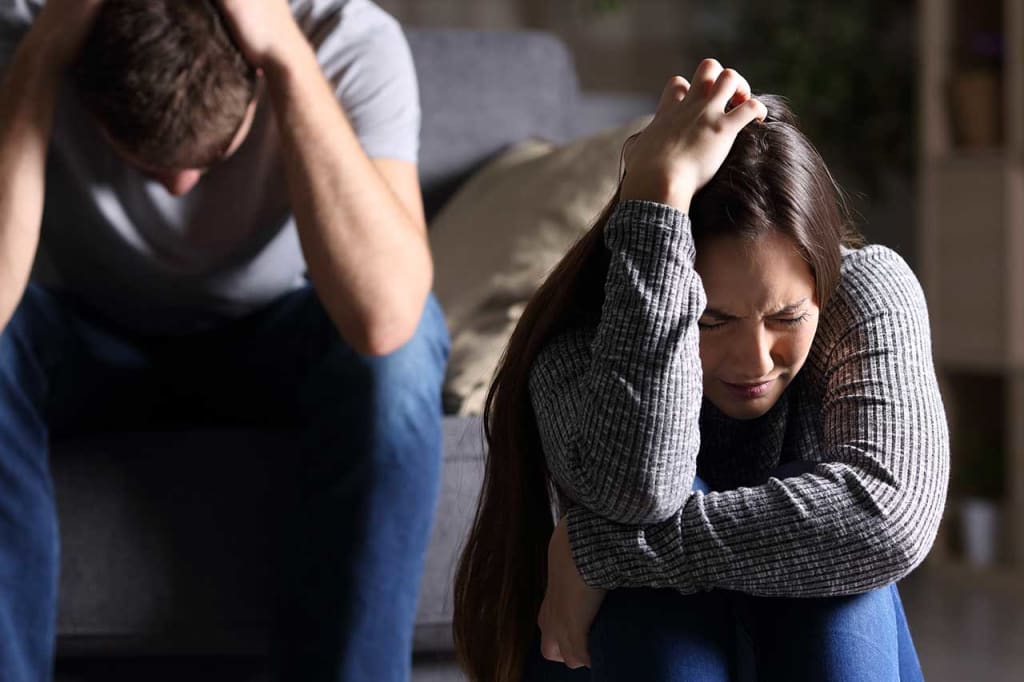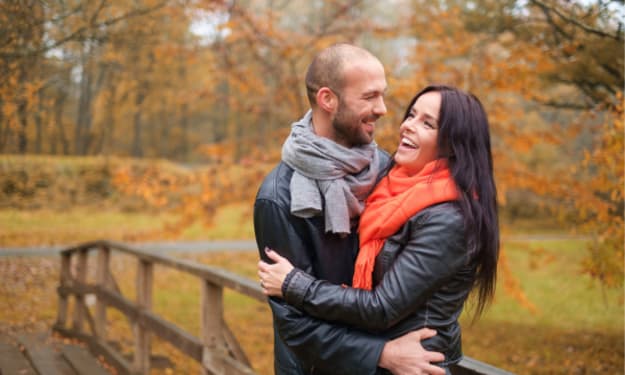Anxiety's Effects on Relationships
Dating with anxiety can put a major strain on relationships and make it difficult to connect with others.

Generalized anxiety disorder (GAD) is marked by excessively worrying over day-to-day occurrences that usually don’t produce fear in others. For people with GAD, this intense sense of worry is difficult to control and can make it difficult for components of a healthy relationship – such as communication, empathy, and individual happiness – to thrive. The fear they may experience in certain situations are also usually disproportionate to the actual situation. However, anxiety doesn’t have to ruin your relationship or put a strain on it to the point where it feels like an obligation. By understanding the impact of anxiety on relationships, you you and your partner can love each other more deeply and connect in new ways.
How Does Anxiety Affect Relationships?
When someone struggles with anxiety in relationships, thoughts like, “What if he doesn’t love me as much as I love him?” or “What if he's lying to me?” can keep them up at night. There are also plenty of anxiety-driven behaviors that people in relationships also illustrate, such as irritability, controlling behavior, codependence, being easily distracted, avoidance, passive-aggressive behavior, and more.
Understandably, these behaviors can lead to stress, confusion, and frustration in a relationship for both parties, but especially in the partner who does not have anxiety. If you’ve ever thought, “Anxiety is ruining my relationship and I don't know what to do,” below are some common signs of anxiety to look out for and address.
Codependency
Many people with anxiety have an intense desire to be close to people they love, including their romantic partners. This, however, can become extreme, often to the point where the individual needs their partner's consistent support and reassurance to feel good. Anxiety can trigger insecurity and challenging doubts, which can lead to these kinds of codependent behaviors.
In addition to being excessively dependent on their partners, people with anxiety also tend to overthink almost everything, expect the worst-case scenario, be indecisive, and carry an intense fear of rejection. These traits often become amplified in romantic relationships and can make both partners feel inadequate, stressed, emotionally drained, and miserable.
Tip: If you find yourself developing an overly dependent attachment to your partner, develop ways to cope with your anxiety that encourage you to look to yourself for feelings of validation. Not only does this take the pressure off your partner, it also fosters self-love, so utilize methods like positive affirmations, journaling, and self-care routines.
Communication is also key component in a relationship, so in moments when you’re questioning your partner’s motives or you start overthinking and stressing the little things, tell them how you feel. They can’t read your mind, so it's better to explain to them what you're feeling and why so they can better understand and reassure you. Transparency also leaves little room for overthinking, confusion, and hurt.
Additionally, you can also try talk therapy to help get you through a rough phase of anxiety and learn some healthy coping mechanisms. Cognitive behavioral therapy (CBT) is a great form of talk therapy that can help you come up with effective coping strategies for those moments when you need to understand the cause of your behavior and readjust or when you have to reassure yourself about what’s actually happening instead of what your anxiety is telling you.
Avoidance in Relationships
Then some people sit on the other end of the anxiety communication spectrum and avoid revealing their feelings to their partners altogether. Some people with anxiety disorders may avoid talking about negative emotions or being vulnerable with their spouses because the conversation itself can lead to an anxiety attack.
Those with anxiety who struggle with avoidance in a relationship may be described as cold, emotionally unavailable, lacking empathy, and standoffish. When a person avoids closeness and vulnerability with others, they can create a lot of negative energy and distance in a relationship, which can make the other person feel inadequate, unloved, and unhappy.
If you'd like to learn more ways that anxiety affects relationships and about help that's available, visit us here!





Comments
There are no comments for this story
Be the first to respond and start the conversation.